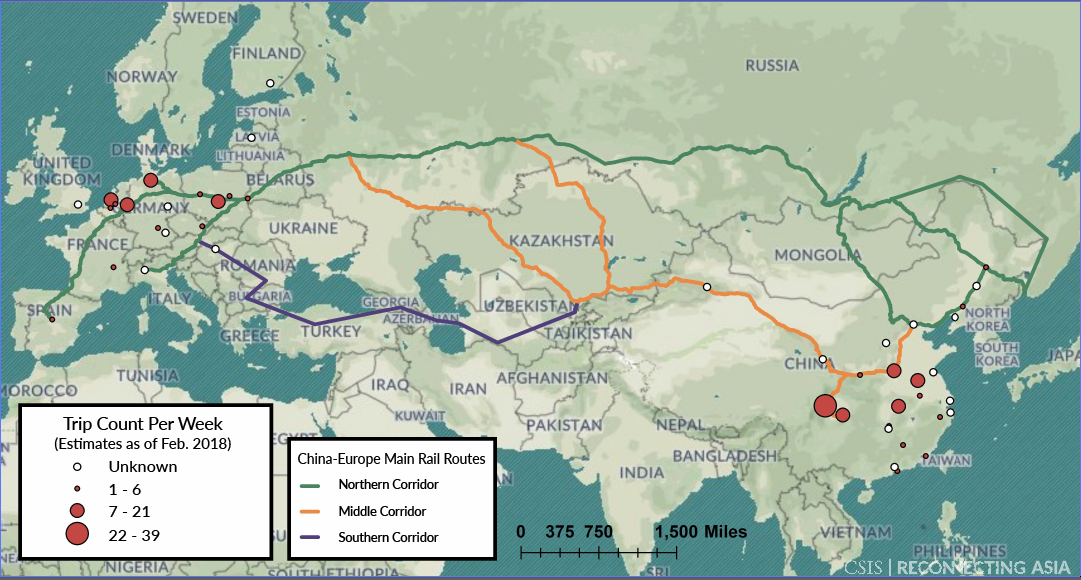China's trade with Europe via freight trains is experiencing a significant upswing, according to data released by China State Railway Group Co., Ltd. (China Railway), the national railway operator. The first quarter of 2024 saw a robust 9% increase in the number of China-Europe freight train trips compared to the same period last year. This translates to 4,541 journeys undertaken in the first three months of 2024.
Furthermore, the total volume of cargo transported via these trains also witnessed a healthy growth of 10% year-on-year, reaching approximately 493,000 twenty-foot equivalent units (TEUs). A TEU is a standard unit used to measure the capacity of containers in freight transportation.
Several factors are believed to be contributing to this positive trend. The continuous expansion of the China-Europe freight train network is a key driver. New routes and improved infrastructure are facilitating smoother and more efficient movement of goods between China and Europe. Additionally, efforts to enhance port handling capacities and streamline customs procedures are further propelling trade growth.
The growth in China-Europe rail trade is mutually beneficial. For China, it provides a reliable and cost-effective mode of transporting goods to European markets, fostering economic activity and competitiveness. For European businesses, it ensures a steady flow of imports from China, meeting consumer demands and contributing to a diversified supply chain.
The development of China-Europe freight train services is also aligned with China's Belt and Road Initiative (BRI), a global infrastructure development strategy. The BRI aims to strengthen trade and economic links between China and other countries across Eurasia and beyond. The expansion of the rail network is a critical component of the BRI, promoting greater connectivity and facilitating the movement of goods and services along this vast trade corridor.
Looking ahead, the future of China-Europe rail trade appears promising. Continued investment in infrastructure development, improving operational efficiency, and fostering closer collaboration between Chinese and European stakeholders are likely to further bolster this vital trade route. As a result, China-Europe rail trade is expected to play an increasingly important role in global trade in the years to come.

